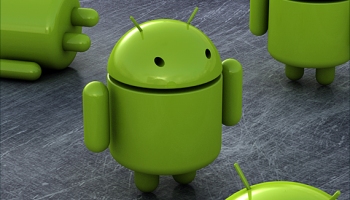Android To Lead Booming Smartphone Market In 2011

IDC expects Android to grab nearly 40 percent of a worldwide market shipping more than 450 million devices this year
Led by Google’s Android operating system, the worldwide smartphone market is expected to grow by nearly 50 percent this year, according to a March 29 report from research firm IDC.
Compared to the 303.4 million smartphone units that shipped in 2010, vendors are expected to ship 450 million units in 2011. With both enterprise users and consumers allured by the devices’ advanced features – including front- and rear-facing cameras and in some instances dual-core processors – the firm expects the smartphone market’s growth rate to be four times that of the overall mobile phone market.
Still, 2011 is not likely to match the annual growth that 2010 saw over the more economically pinched 2009.
Exceptional Market Growth Last Year
 “Overall market growth in 2010 was exceptional,” Kevin Restivo, senior research analyst with IDC’s Worldwide Quarterly Mobile Phone Tracker, said in a statement. “Last year’s high market growth was due in part to pent-up demand from a challenging 2009, when many buyers held off on mobile phone purchases. The expected market growth for 2011, while still notable, will taper off somewhat from what we saw in 2010.”
“Overall market growth in 2010 was exceptional,” Kevin Restivo, senior research analyst with IDC’s Worldwide Quarterly Mobile Phone Tracker, said in a statement. “Last year’s high market growth was due in part to pent-up demand from a challenging 2009, when many buyers held off on mobile phone purchases. The expected market growth for 2011, while still notable, will taper off somewhat from what we saw in 2010.”
By year’s end, IDC expects Android to command 40 percent of worldwide mobile operating system market share and to continue climbing to 45.4 percent by 2015.
“For the vendors who made Android the cornerstone of their smartphone strategies, 2010 was the coming-out party,” IDC Senior research analyst Ramon Llamas said in a statement. “This year will see a coronation party as these same vendors broaden and deepen their portfolios to reach more customers, particularly first-time smartphone users.”
The latter include Samsung, HTC, Motorola and LG Electronics.
Symbian, the long-time market share leader – which by some counts lost the crown to Android during the fourth quarter of 2010 – is expected to hold 21 percent of the market, before slipping to 0.2 percent in 2015. This is due primarily to Symbian’s primary cheerleader, Nokia, announcing in February that, going forward, it would make Microsoft’s Windows Phone OS its main focus, instead of Symbian – a move that IDC says will have “significant implications” on the smartphone market.
“Up until the launch of Windows Phone 7 last year, Microsoft has steadily lost market share while other operating systems have brought forth new and appealing experiences,” said Llamas. “The new alliance brings together Nokia’s hardware capabilities and Windows Phone’s differentiated platform. We expect the first devices to launch in 2012.”
By 2015, IDC expects Windows Phone to claim 21 percent of the worldwide smartphone market, which would put it in the number two spot behind Android.
Apple’s iOS is expected to hold steady in third place, with 15.7 percent market share in 2011 and 15.3 percent in 2015. In addition, Research In Motion’s BlackBerry OS is similarly expected to stay in fourth place, claiming 16 percent market share this year and 15 percent in 2015.
Stickler note: While RIM’s newest smartphones run the BlackBerry 6 OS, the company plans to eventually transition all its devices to QNX, the software run by its PlayBook tablet. RIM recently also announced that the PlayBook, which will go on sale April 19, will also be able to run applications created for Android 2.3, or “Gingerbread”.